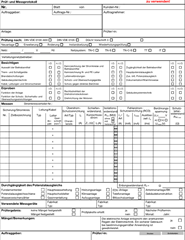Hi All
My son has just bought a house in Germany. He wants me to inspect and carry out some modifications. What are the applicable German standards? I imagine they are not far from BS7671 and expect it's some DIN standard. I'll take my trusty Fluke meter and get it calibrated locally just to be on the safe side.
Stephen
